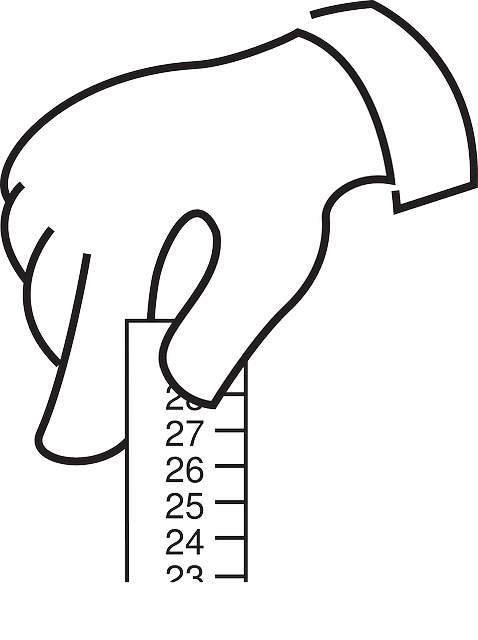Listen on Spotify.
Many labour productivity metrics have become a counterproductive, outdated way to gauge the impact we have on the world when many of us in the modern world are concerned primarily with generating ideas.
Is it time, then, to stop measuring productivity? But it does depend on the industry you work in.
After all, measuring output over time to gauge the performance of knowledge workers disregards the quality of the output they produce and the results or outcomes which followed on from that.
At least as far as knowledge workers are concerned, then, we should access whether they are achieving desirable outcomes for customers or clients and see if they are able to remain healthy and happy while doing so.
It may seem reasonable to put a metric on things we would like to achieve. But the problem is, this may be one of the worst things you can do.
Why?
Let’s look at an example to find out.
A director of a software company is panicking. They are weeks behind schedule on a project, so he decrees that every one of his employees must work on Saturdays until they catch up. The boss himself won’t be working weekends though. All the boss planned to do was drive past the office on Saturdays to check that the developers’ cars were outside.
Soon enough, his workforce grew resentful and started asking friends to pick them up on Friday evenings and taking a taxi to work on Mondays, so that their cars stayed in the carpark. Thus, the boss would see them, when he drove by and think they were present and working.
But the mere presence of their cars outside was no proof that they were even present, let alone proof of them being productive and working to catch up on the project. The matric of checking if their vehicles were outside was ineffective, proved nothing, and was thus a failure.
The boss was measuring the number of cars in the carpark, and he saw cars there, but they reveal nothing about whether his employees were there working.
This is an illustration of the measurement/management problem. Later, we’ll delve into the viable alternatives to measuring productivity. First, though, we should investigate how we talk about productivity — on both an individual and team level — and how it has contributed to the measurement/management problem. We’ll also find out if our obsession with productivity could be harmful.
The Productivity and the Measurement/Management Problem
When we use productivity as a metric to gauge individual and team performance we come across the measurement/management problem.
At its heart, productivity is simply an equation of output over time. It has two main implications.
- We are inescapably speaking of output when talking about productivity rather than results.
- That means when we talk about increasing productivity, we’re talking about increasing output.
But of course, it does not necessarily follow that greater output leads to better outcomes.
Imagine an author writes two books that are middle-of-the-road. Another author writes just one book, but it is fantastic, draws people in, and entertains them. Each writer sends their works to a publisher.
Only the author who produced one excellent book gets a publishing deal. The first author has a negative outcome despite him being twice as productive.
The second writer proved more effective at managing their available time and resources and achieved success despite not being as productive as the first author.
Nonetheless, society is now obsessed with productivity, as a large proportion of us are knowledge workers.
Is this relatively recent obsession with productivity causing harm? If it is, what should we replace it with?
Let’s find out.

The Problem with Productivity
The way we think about productivity is based on ideas and concepts that are now 250 years old. It was first used in an agricultural and manufacturing context, as we touch on in our post on the history of productivity. Over time, advances in technology increased output and the number of hours people worked didn’t change so productivity increased.
Productivity remained a useful measure of performance, as long as we were producing primarily material goods, and those goods were the backbone of our economy. As technological advances continued apace, we became more and more concerned with productivity. Soon, fewer agriculture and manufacturing works were needed because of labour-saving devices.
Thus, many of us transitioned into knowledge work. That is to say, office work, jobs in healthcare and education, for example. Productivity continued to be a metric used to gauge performance because the idea of it was by now entrenched. Measuring it yields data, which only served to make us more certain that it is a useful metric when it could be argued that its usefulness as a way to measure performance was in decline.
Today, it’s easier than ever before to communicate ideas using tools like text and email, meaning we can act on them more quickly. When we measure the productivity of knowledge workers we can measure the impact of those ideas, but we know very little about how good those ideas are. Thus, if you want to measure creativity, using productivity as a performance metric is useless.
Measuring productivity also can’t tell us if we’re engaged in the right work, so it’s possible that someone’s work isn’t contributing much to the business, or product being made.
There are also problems with how we go about measuring productivity. Say a team’s productivity is judged by how long it takes to ship orders. This obviously incentivises people to ship stuff fast and get rewarded. If they are tasked with developing something, they may add lightweight features that don’t add to the user experience or make the product more attractive but make it possible for the team to ship it faster. People will also be less likely to take on more complex projects that demand deeper, risker work, because this would mean slower development and a delay in stuff getting shipped, which workers would be penalised for.
Pushing employees to be more productive without giving them tools to help achieve it leads to more stress, and people either work longer hours or rush through tasks to get their work done. If this goes on for any length of time, people are unable to perform at their best or think in a creative way because they’ve become too exhausted. Measuring productivity is those circumstances yields no useful information. Pursuing productivity at all costs can therefore be harmful, as it messes with our work-life balance and creates undue stress.
Read our post on work-life balance for more.
If we accept that measuring productivity is causing harm as well as mostly useless as a way to measure the performance of knowledge workers, let’s explore some viable alternatives.

Two Viable Alternatives to Measuring Productivity
Productivity is a fantastic way to measure the impact of machines, but as we’ve pointed out, it’s not the best way to gauge human influence.
What metric can we use instead that will help us shift our focus from productivity and efficiency to effectiveness?
Here are some ideas.
Focus on Results, not Output
We must focus on results and outcomes for our business or customers, rather than what we can produce through our efforts. For example, if you’re a marketer, make the goal increasing website traffic by 5% rather than just aiming to produce more content.
The beauty of shifting focus like this is it encourages us to innovate to achieve those results. We have room to be more creative as we can decide on the best way to achieve results-oriented goals.
Managing toward results helps us gather feedback on a portion of work and then make improvements and changes as many times as necessary to obtain the desired result.
Measure Effectiveness
Here are some ideas on how to do this.
- Create and celebrate milestones – Doing this is fantastic for morale and helps people remain enthusiastic about what they’re working on. Mapping out milestones also makes it easy to see when you’re behind schedule, which creates a sense of urgency that often boosts creativity as you work out how you’re going to catch up. Milestones also build an element of measurement in your work from one, which is useful when you need to give customers updates.
- Create feedback loops – This will help you communicate with customers and better meet their needs and wants so that you can get more conversions and better results. A publisher looking to grow their audience might create a feedback loop to see how your sharing content across social media platforms.
- Value the well-being of your employees – You need to ensure your workforce is happy and healthy if you want them to be effective. To gauge well-being, you might look at the amount of unplanned time off everyone is taking. If one person is taking way more than others, it could be a sign of potential burnout. If someone else is constantly working more than 40 hours a week, that could also signal approaching burnout. If this happens, make time for a one-on-one meeting, and discuss what support they may need to get them to a healthier, happier place. Only then will people be able to work effectively on a consistent basis. Make things about people, not just the business.
- Always be on the lookout for ways to improve – You can measure improvement by looking at growth rates. Is the rate at which you’re acquiring new customers increasing or decreasing? You must learn as you go to improve and succeed. Apply whatever lessons you’ve learnt to your work going forward if you want to make improvements.
Wrapping Up
It’s clear from what we’ve talked about in this article that we should stop measuring productivity, at least for knowledge workers. While it may still be a useful way to measure performance in some fields, for knowledge workers it’s outdated and tells you very little.
So, if you’re in an industry that relies on knowledge workers, try to measure effectiveness rather than productivity. Why not use the tips we shared? Soon, you might see some surprising results.
If you work in an industry or field in which the metric of productivity is still useful, check out our post on how we can measure productivity.
